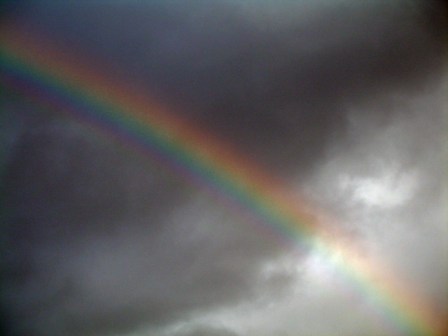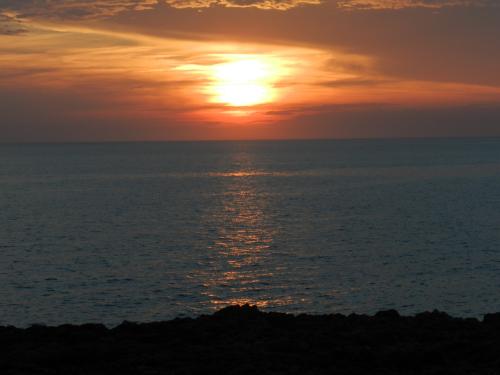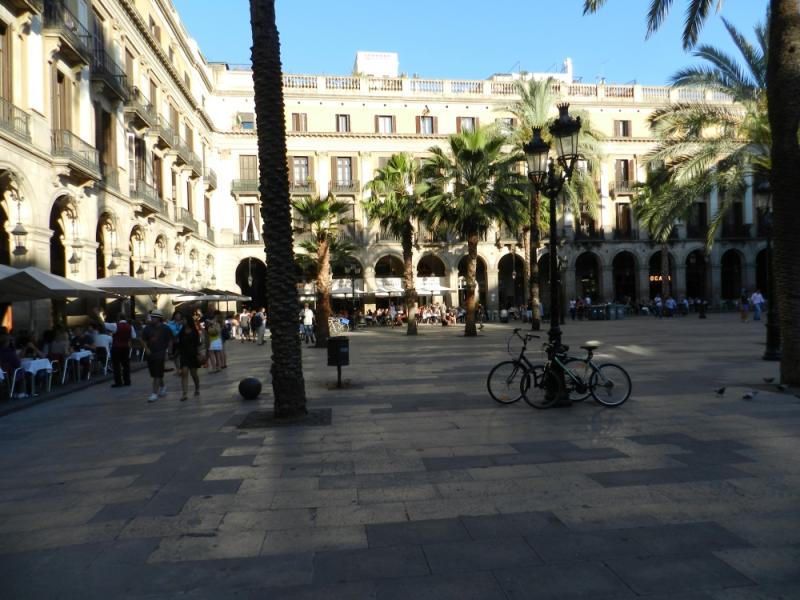Why Write?
Why do you write? Or to be more accurate, why should you write? After all, there’s a million writers in the world, and I’m sure you tell yourself that they’re all better than you. What’s the point?
why should you write? After all, there’s a million writers in the world, and I’m sure you tell yourself that they’re all better than you. What’s the point?
Why do you write? Or to be more accurate, why should you write? After all, there’s a million writers in the world, and I’m sure you tell yourself that they’re all better than you. What’s the point?
why should you write? After all, there’s a million writers in the world, and I’m sure you tell yourself that they’re all better than you. What’s the point?
 The 4 rules for beginners:
The 4 rules for beginners:
You have to have a quiet place with a desk, comfortable chair, and adequate light.
You have to set aside a regular schedule of writing time. It can be rigid (e.g., 6-7 each morning) or flexible (e.g., 3 nights a week) but it has to be frequent and you have to stick to it.
It doesn’t matter what you write, just write. If you get stuck, write a letter to a friend.
 It doesn’t matter whether you come from a psychological background or a literary background or whether you just observe people or watch yourself – you know that what we see is not what is there. We think we know the other person, the one we used to love, for example, the one who drove us to ecstasy, the one who said they would always love us, you know, that one…. or we think we know ourselves, how strong we are, how ethical we are, until life suddenly tests us, or worse, slowly tempts us….. or we think we see how things works, how politics or organizations or people work, until they don’t.
It doesn’t matter whether you come from a psychological background or a literary background or whether you just observe people or watch yourself – you know that what we see is not what is there. We think we know the other person, the one we used to love, for example, the one who drove us to ecstasy, the one who said they would always love us, you know, that one…. or we think we know ourselves, how strong we are, how ethical we are, until life suddenly tests us, or worse, slowly tempts us….. or we think we see how things works, how politics or organizations or people work, until they don’t.
That’s the point of writing, you know, to talk about the difference between what we see and what is really there. We don’t write to “find the truth” – you can’t find the truth – all we can do is tinker with it, turn how we perceive things over and over in our hands like some crystal ball that never tells us anything. We see the world through a glass darkly. Forget writing about the truth. Describe the glass. The glass that is darkened and distorted by sexual desire, greed, revenge, emptiness, and most of all, by love. If you don’t know how to start writing, start by describing the glass that we can’t see through.
 People often ask me, how do you write when you’re on the road? As you may know, I travel from November to April, doing what I can to sell my books. Book promoting is a break-even business at best, that is, you don’t make any money on the tour, but you hope that there’s enough ripple effect so that enough books sell the rest of the year that you can spend May through October proofing, editing, revising, and publishing new work. So you have to find a way to write on the road. Well, writing on the road is no different than writing at home. You have to structure your environment so that your writing tools are always right in front of you. On the road, I carry a small 7” tablet outfitted with a keyboard. I won’t mention the brand because everyone has preferences, but it’s easy for me to flip open first thing in the morning, or when I’m waiting at an airport, have a few hours at the hotel before a reading. At the end of every day, I email what I’ve written to myself (so that if my tablet ever gets stolen or lost, I can still download my writing from any computer). And while I do spend a fair amount of time exploring the cities I visit and having dinner with old friends, I find that most of my time on the road is spent writing. In some ways, you have more time (to kill) on the road than you can find at home.
People often ask me, how do you write when you’re on the road? As you may know, I travel from November to April, doing what I can to sell my books. Book promoting is a break-even business at best, that is, you don’t make any money on the tour, but you hope that there’s enough ripple effect so that enough books sell the rest of the year that you can spend May through October proofing, editing, revising, and publishing new work. So you have to find a way to write on the road. Well, writing on the road is no different than writing at home. You have to structure your environment so that your writing tools are always right in front of you. On the road, I carry a small 7” tablet outfitted with a keyboard. I won’t mention the brand because everyone has preferences, but it’s easy for me to flip open first thing in the morning, or when I’m waiting at an airport, have a few hours at the hotel before a reading. At the end of every day, I email what I’ve written to myself (so that if my tablet ever gets stolen or lost, I can still download my writing from any computer). And while I do spend a fair amount of time exploring the cities I visit and having dinner with old friends, I find that most of my time on the road is spent writing. In some ways, you have more time (to kill) on the road than you can find at home.
The trick is, to keep the story thread going. I’m lucky, in that most of my writing is poetry, which is a format better fitted for those 3-4 hour layovers, and evenings at hotels. But I’ve been able to write longer short stories too, which often take several weeks to write. Scarlet’s, for example was written in a 4 week time period during which I traveled from Detroit to Chicago to Seattle to Los Angeles.
So, when in Rome, adapt. While the 7 inch tablet with keyboard is not as comfortable as my full size keyboard at home, it is convenient and easy to travel with. If not a keyboard, get a 5x8 writing tablet that easily fits in a knapsack or that you can tuck in your belt in the back under your shirt. One trip, all I had was several packs of 3x5 cards I carried with me everywhere. When I got back to the hotel each night, I would summarize my scrawling onto regular paper, or if the hotel had a business computer, I would type the notes and again, email them to myself.
 Yes, writing is about many things: plot, mood, character, bla-bla. That’s all true. But your conscious mind will work all those things out as the words come pouring out of you. The trick with writing is to fuel the fire that creates the outpouring of words. And what taps that well? What unleashes those thoughts, those images, that torrent of words that you later shape into plots and characters?
Yes, writing is about many things: plot, mood, character, bla-bla. That’s all true. But your conscious mind will work all those things out as the words come pouring out of you. The trick with writing is to fuel the fire that creates the outpouring of words. And what taps that well? What unleashes those thoughts, those images, that torrent of words that you later shape into plots and characters?
It is the senses. You stoke the fire of your soul through your senses. As Blake said, the road of excess leads to the palace of wisdom. And it’s not just excess, it’s any sensorial delight. For example, one of my favorite restaurants in Minorca is La Guitarra. You go in through this small wood plank door that looks like it was carved in the Middle Ages. You go down the steep cut-stone stairs into a dark basement. The floor is made of large worn tiles, also from the Middle Ages. There are many square wooden tables set at random, each covered with a crisp clean white table cloth. And thank goodness for the reflection of light off the tablecloths because your eyes have not adjusted from the light of day, coming in from the outside. Even at midday, the waiter will light a candle at your table, so you can read the menu. Their specialty is Caldereta de Langosta, a traditional lobster stew popular in Minorca. Large chunks of lobster in a thick vegetable/tomato base. It’s very good, one of the best versions on the island, but I prefer their Gambas al Ajillo, a simple dish of (huge) prawns sautéed in garlic and covered with a delicate wine sauce over rice. Simple but delicious.
What’s this got to do with writing? Conveying a scene in a story is all about conveying the experience of something. And you can’t convey the experience until you’ve had the experience. Try writing an S&M scene, for example.
“If only I had more time.”
“I’ll write when the weekend comes.”
“I need to relax tonight. I’ll write tomorrow.”
“Something always comes up.”
 We’ve all used these excuses, because we’re human, and it’s easier to go out, to relax, to put writing off until tomorrow, and there is always something that needs to be done first, like grocery shopping, or picking up the dry cleaning, or taking a nap… Let me tell you the truth. Writing is work. It’s not a luxury. It’s not an avocation or a hobby. It’s work. And like work, you have to set aside a time every day, and a place every day, and just fucking write. When the poetic line comes in the middle of the night, you have to get up, turn on the light, and write it down. Because it will be gone tomorrow if you don’t write it down. Writing is work. And whatever you can do to trick yourself into writing – do it. But set your environment. Have a desk set up somewhere where you write. Have your computer always there. Have the coffee nearby. Place those 3x5 cards and a pen by the bed. Then start tricking yourself. Make a list of things you need to do today, but put writing first. No matter how many times you jump ahead to doing number 2 first, keep putting writing as your first choice. Eventually you will write first. If you drink wine at night, don’t pour that first glass until your computer is up and running with a blank page on the screen. If you’re a morning writer, do the same thing with your coffee. Start associating that first cup of coffee with typing away at your computer. If you’re stuck on a novel or an essay, write a short poem first, to awaken the muse. Use guilt. Guilt is a great motivator. Tell yourself: “Everyone’s got a great excuse for not writing – do you want to be like them?”
We’ve all used these excuses, because we’re human, and it’s easier to go out, to relax, to put writing off until tomorrow, and there is always something that needs to be done first, like grocery shopping, or picking up the dry cleaning, or taking a nap… Let me tell you the truth. Writing is work. It’s not a luxury. It’s not an avocation or a hobby. It’s work. And like work, you have to set aside a time every day, and a place every day, and just fucking write. When the poetic line comes in the middle of the night, you have to get up, turn on the light, and write it down. Because it will be gone tomorrow if you don’t write it down. Writing is work. And whatever you can do to trick yourself into writing – do it. But set your environment. Have a desk set up somewhere where you write. Have your computer always there. Have the coffee nearby. Place those 3x5 cards and a pen by the bed. Then start tricking yourself. Make a list of things you need to do today, but put writing first. No matter how many times you jump ahead to doing number 2 first, keep putting writing as your first choice. Eventually you will write first. If you drink wine at night, don’t pour that first glass until your computer is up and running with a blank page on the screen. If you’re a morning writer, do the same thing with your coffee. Start associating that first cup of coffee with typing away at your computer. If you’re stuck on a novel or an essay, write a short poem first, to awaken the muse. Use guilt. Guilt is a great motivator. Tell yourself: “Everyone’s got a great excuse for not writing – do you want to be like them?”